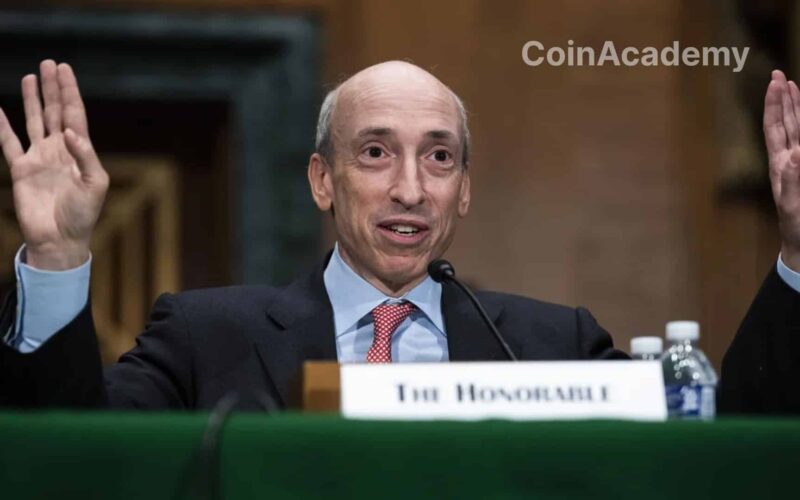Joseph Lubin criticizes US regulators, accusing them of favoring big banks by applying outdated laws to cryptocurrencies.
Joseph Lubin, founder of Consensys, publicly criticized US regulatory bodies at the EthCC conference in Brussels. According to him, they have been “asleep at the wheel,” allowing opportunistic actors to influence cryptocurrency policy.
However, Lubin acknowledges that tangible progress is now being made with regulators, particularly due to the increasing involvement of lawmakers ahead of the upcoming US elections.
An industry influenced by opportunistic actors
Ils ont travaillé avec le président Gensler pour dire : “Utilisons ces lois presque centenaires, étendons notre juridiction et contrôlons cette nouvelle technologie afin de pouvoir l’intégrer dans l’infrastructure actuelle” et les grandes banques et la grande finance peuvent continuer à opérer et peut-être créer une version simplifiée de la décentralisation.
In his speech, Lubin pointed fingers at certain members of Congress and a banking lobby, accusing them of taking advantage of regulatory uncertainty to shape the policy of the Securities and Exchange Commission (SEC) according to their own interests.
The result of these maneuvers has been the application of century-old laws to control this new technology, favoring big banks and traditional financial institutions. This phenomenon has led to a watered-down version of decentralization.
Years of regulatory uncertainties
Joseph Lubin admitted to years of legal instability, dealing with unclear and restrictive regulations. However, he highlights that during his time at the Massachusetts Institute of Technology (MIT), Gary Gensler, the current chairman of the SEC, stated that over 75% of tokens did not qualify as securities, which also excluded Ethereum from this regulatory framework.
New engagement from politicians and Consensys’ cases
Despite an unfavorable climate, Lubin remains optimistic about the future, believing that election deadlines offer new opportunities for legislators to gain support and raise capital. In this context, he believes that the relationship between crypto actors and government bodies should be less confrontational in the future.
On April 25, Consensys filed a lawsuit against the SEC, arguing that ETH does not have any of the characteristics of a security and should therefore be outside the authority’s jurisdiction. Through this complaint, Consensys also disclosed that it had received a Wells Notice from the SEC indicating that the authority was considering taking enforcement action against it.
On June 28, the SEC filed a complaint against Consensys, accusing the company of operating an unregistered broker through its digital wallet MetaMask. Specifically, the “swap” functionality, which allows for the exchange of one token for another, would constitute a violation of current legislation.
In addition, the SEC claims that MetaMask’s staking service should be classified as an unregistered security program because it facilitates interaction with liquid staking protocols such as Lido and Rocket Pool.
On July 2, a judge in Texas approved an accelerated schedule for the proceedings between the SEC and Consensys. Hearings will begin on July 29 and continue until November 26, suggesting that a final decision could be reached by the end of the year or early 2025.




